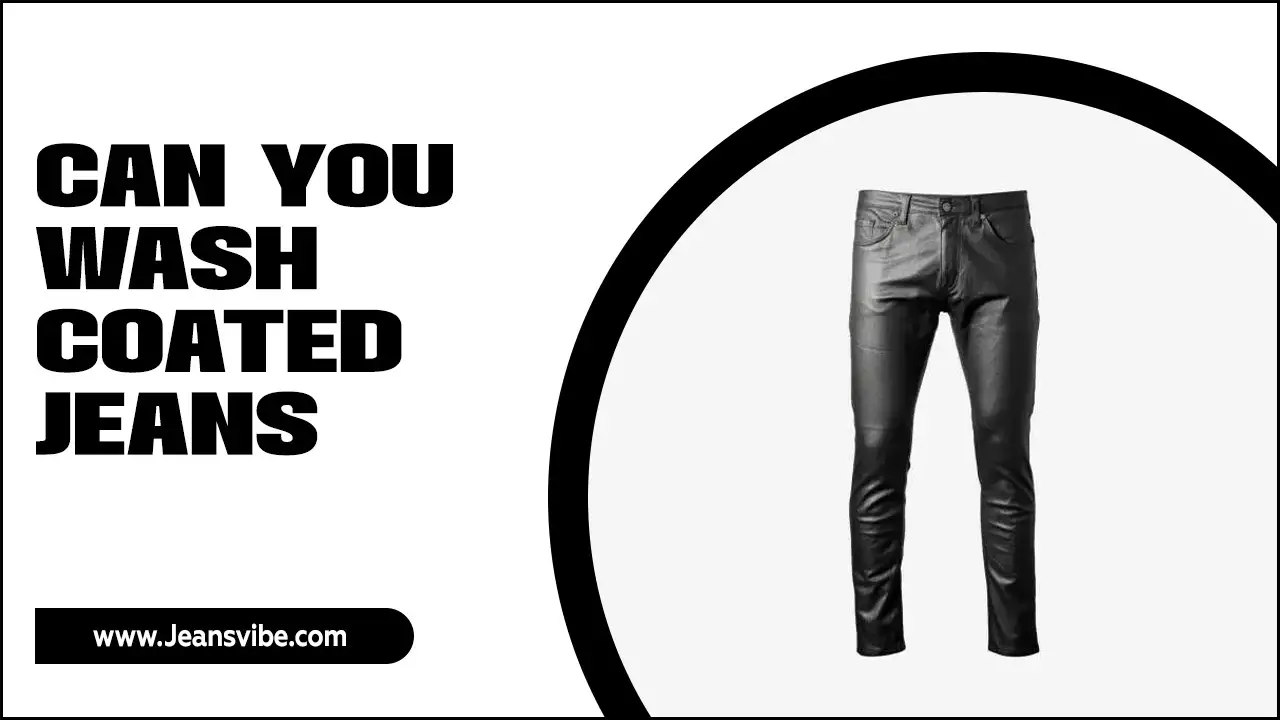Jeans have long been a staple in the world of fashion, and they are known for their durability and versatility. However, despite their popularity, many people have experienced the uncomfortable sensation of itchy jeans.
This seemingly innocuous annoyance can quickly turn into a frustrating and uncomfortable experience, leaving many wondering, “Why are my jeans itchy ?” While the answer may seem simple, the underlying causes of itchy jeans can vary, ranging from allergic reactions to poor fabric quality. Here, we will discuss all the possible causes of itchy jeans and provide solutions that can help you alleviate the discomfort.

Your Jeans May Be Itchy Because Of These Following 12 Reasons
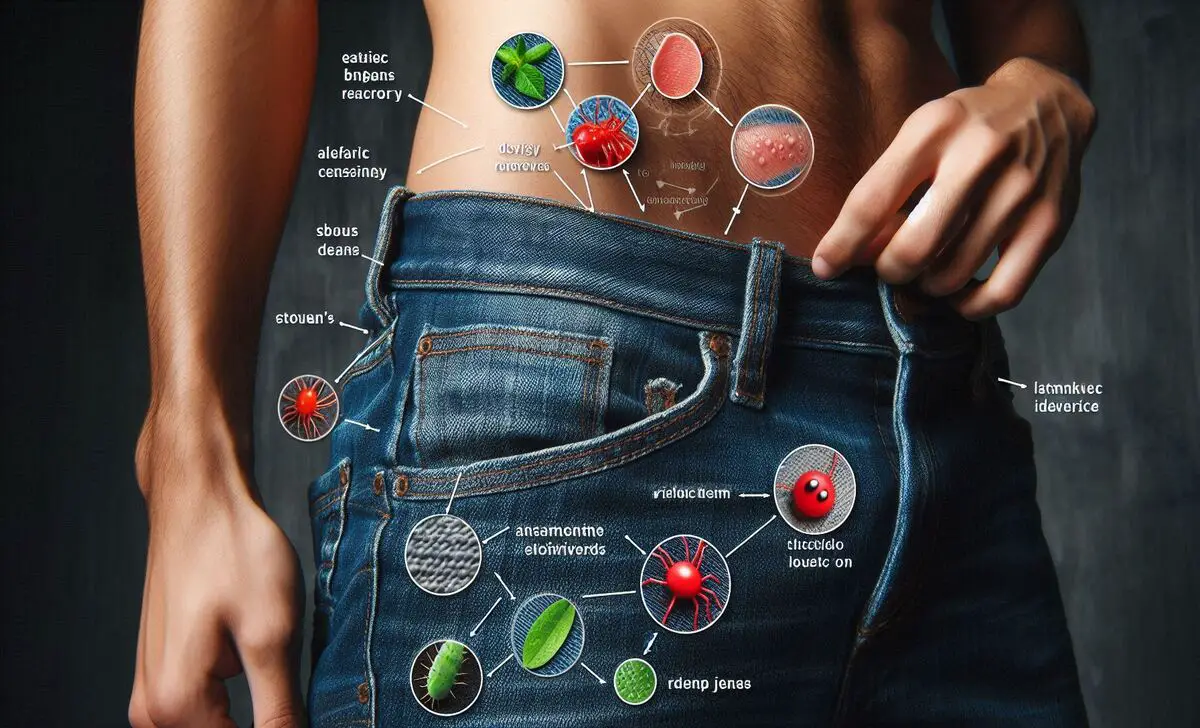
Jeans can sometimes cause itching due to various reasons. Fabric composition plays a crucial role, as certain fabrics, like rigid denim or synthetic blends, can irritate the skin. Allergic reactions are another common cause, often triggered by dyes and chemicals used in the manufacturing process. Itching can also result from the tags and seams on jeans rubbing against the skin.
Additionally, poorly fitting jeans can create friction, leading to itching. To address these issues, it is advisable to wash jeans before wearing them, choose softer fabrics, remove tags, and opt for better-fitting pairs. Below we discuss the 12 reasons why are my jeans itchy in detail.
1.Allergic Reactions To Jeans
Allergic reactions to jeans can cause symptoms such as itching, redness, and swelling. It’s essential to identify potential allergens in denim, such as dye, glue, or textile chemicals. Jeans can trigger certain skin conditions like dermatitis, eczema, or psoriasis. To reduce allergic reactions, consider washing your jeans before wearing them to remove any potential irritants.
2.Poorly Fitted Jeans
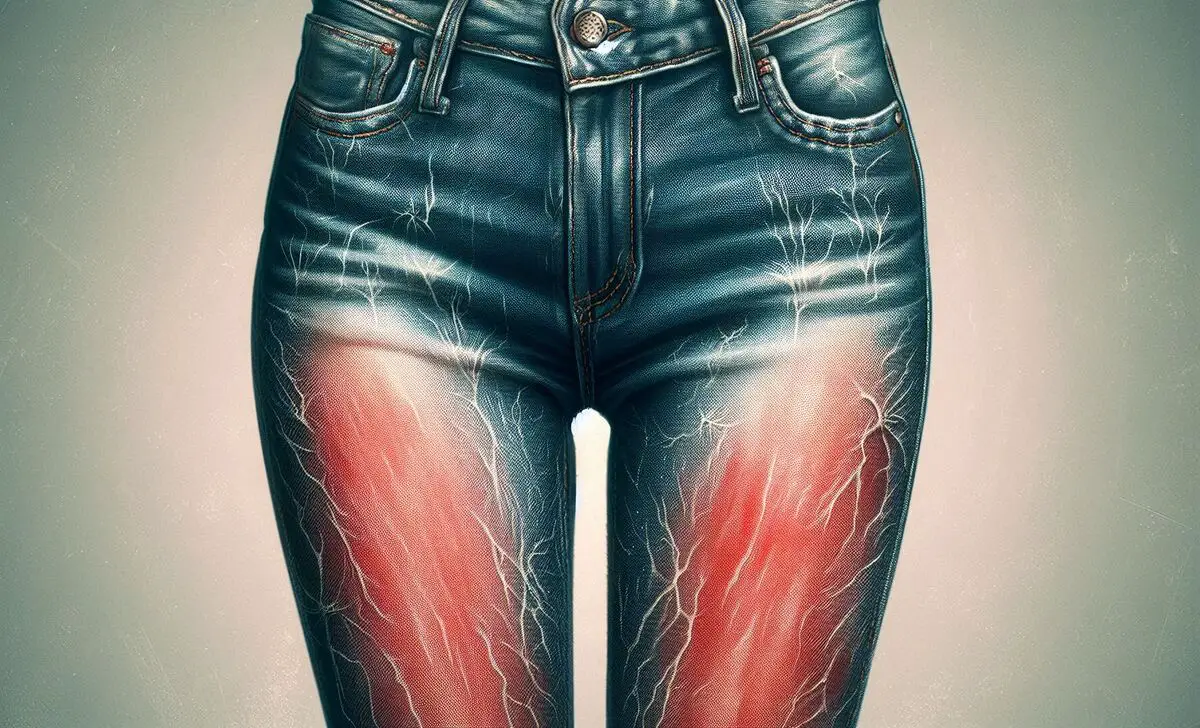
Wearing jeans that are too tight or uncomfortable can lead to itchy legs and discomfort. When your jeans are too tight, they can restrict blood circulation and cause nerve damage, resulting in itching and discomfort. It’s crucial to find jeans that fit properly to prevent itchiness.
Consider opting for jeans made from soft, breathable fabrics like spandex or cotton, especially if you have sensitive skin prone to textile dermatitis or allergies.
3.Irritating Denim Finishes
Certain denim finishes, such as distressing or sanding, can lead to itchy legs and the dreaded “itchy pants syndrome.” These finishes often have rough textures or contain synthetic fibers that can irritate the skin. To minimize itchiness, opt for jeans with smoother and softer denim finishes. Additionally, washing your jeans inside out can reduce direct skin contact with these irritating denim finishes.
4.Laundering Techniques
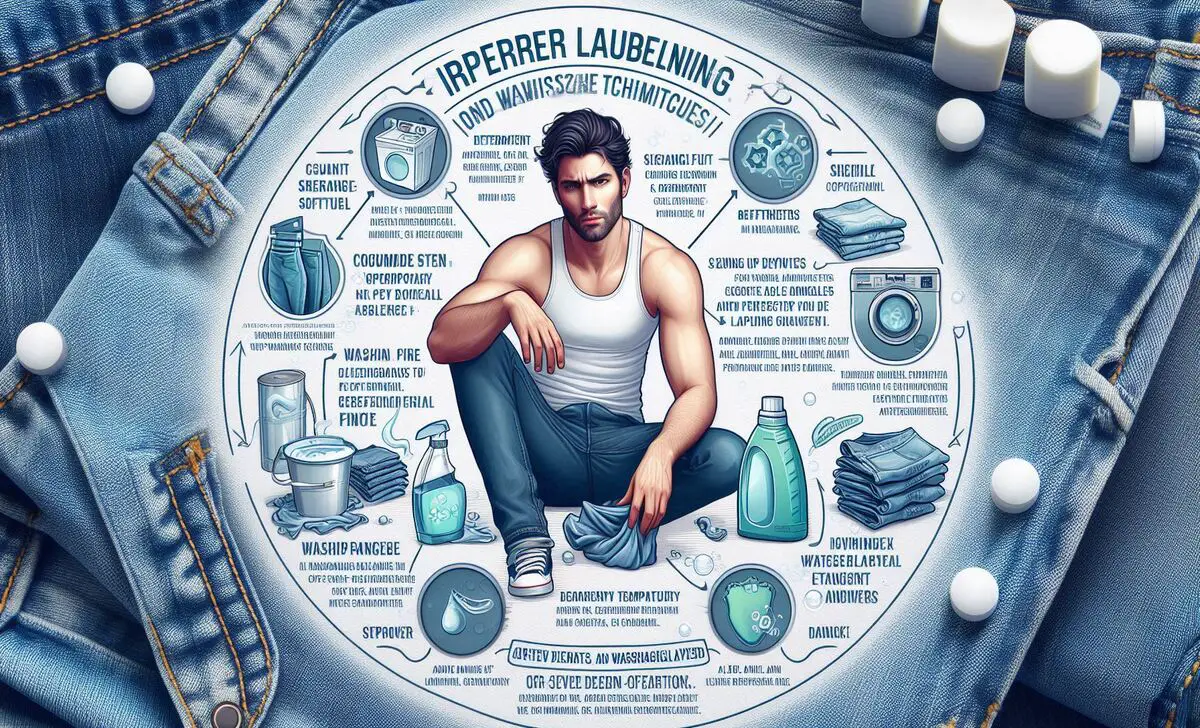
Improper laundering techniques can contribute to itchiness in jeans. The impact of detergent, softeners, and washing temperature on skin irritation should not be underestimated. Make sure to follow the washing instructions provided by the manufacturer to maintain the quality of your denim.
Consider using fragrance-free detergent and avoiding fabric softeners, as these can minimize irritation. Additionally, it is important to allow your jeans to dry completely before wearing them to prevent any potential skin reactions.
5.Hygiene And Itchiness
Practising proper hygiene is crucial in reducing itchiness when wearing jeans. Regular washing of your jeans helps to minimize skin irritation, particularly if you have itchy legs. It is also advisable to avoid wearing jeans for extended periods, especially in hot and humid conditions, as the sweat can exacerbate itchiness.
To keep your skin moisturized and prevent dryness, consider using moisturizer or lotion before putting on your jeans. In cases of allergic reactions that cause itching, taking antihistamine medication can provide relief.
6.Environmental Factors
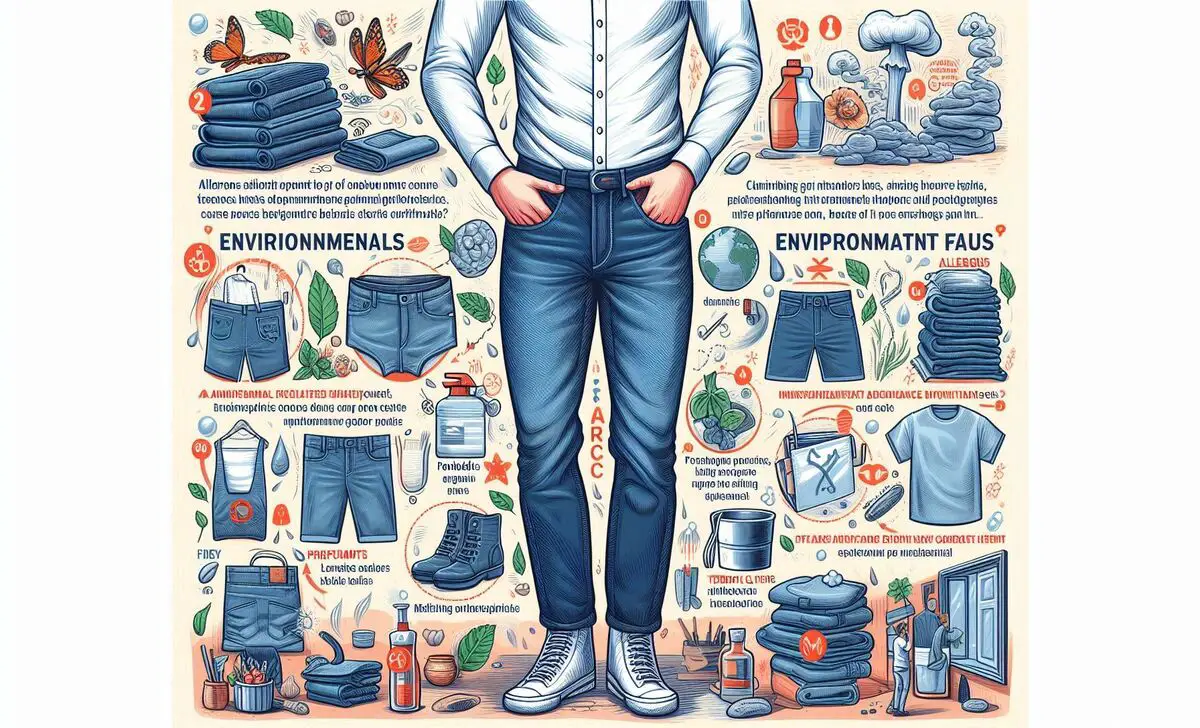
Environmental factors can contribute to itchy jeans. Allergens or irritants present in the environment can cause discomfort and irritation. It is important to identify potential allergens such as nickel, formaldehyde, or textile dyes that may be present in jeans. Minimizing exposure to irritants like perfumes, smoke, or harsh cleaning chemicals while wearing jeans can help alleviate the itchiness.
Additionally, maintaining good indoor air quality can reduce the risk of allergic reactions. Consider wearing underwear made from breathable, skin-friendly fabrics to protect against irritation.
7.Psychological Factors:
Psychological factors can have a significant impact on itchiness when wearing jeans. Stress or anxiety, for example, can worsen the itchiness experienced. It is essential to practice stress-management techniques such as deep breathing or meditation to reduce itchiness.
Engaging in physical activities or hobbies that promote relaxation and distract from the itchiness can also be helpful. If psychological factors significantly impact your well-being, seeking support from friends, family, or professionals is crucial.
8.Dermatological Conditions And Jeans
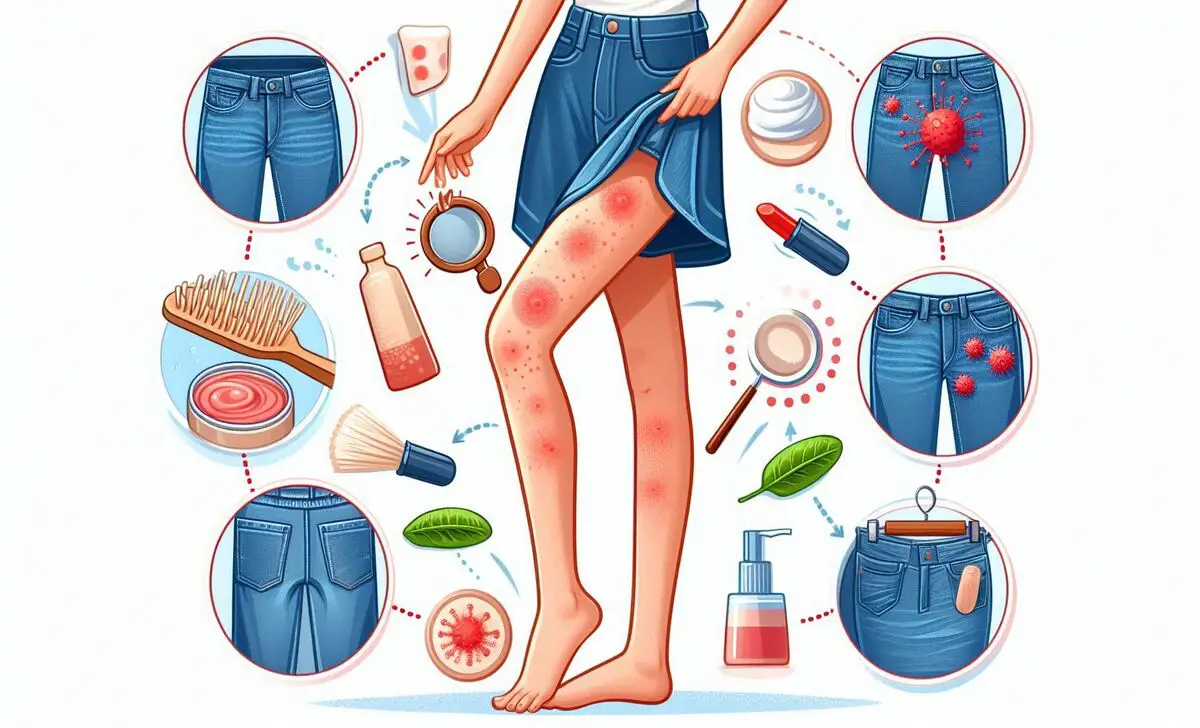
Dermatological conditions can be a major cause of itchiness when wearing jeans. If you already have conditions like eczema, psoriasis, or dermatitis, jeans can aggravate them and make your legs itchy. It’s important to understand how these skin conditions can be triggered by jeans and seek proper diagnosis and treatment from a dermatologist.
Consider exploring clothing alternatives such as skirts or pants made from skin-friendly fabrics during flare-ups. Following dermatologist-recommended skincare routines, including moisturizing and avoiding irritants, can also help manage and prevent itchiness caused by dermatological conditions.
9.The Role Of Dyes And Chemicals
Dyes and chemicals play a significant role in the production of denim, and they can contribute to itchiness in jeans. Some common denim dye allergens, such as azo dyes, have the potential to impact the skin and cause itchiness. To avoid this, consider jeans made from natural, dye-free fibres or those labelled as dye-free for sensitive skin.
10.Dry And/Or Sensitive Skin
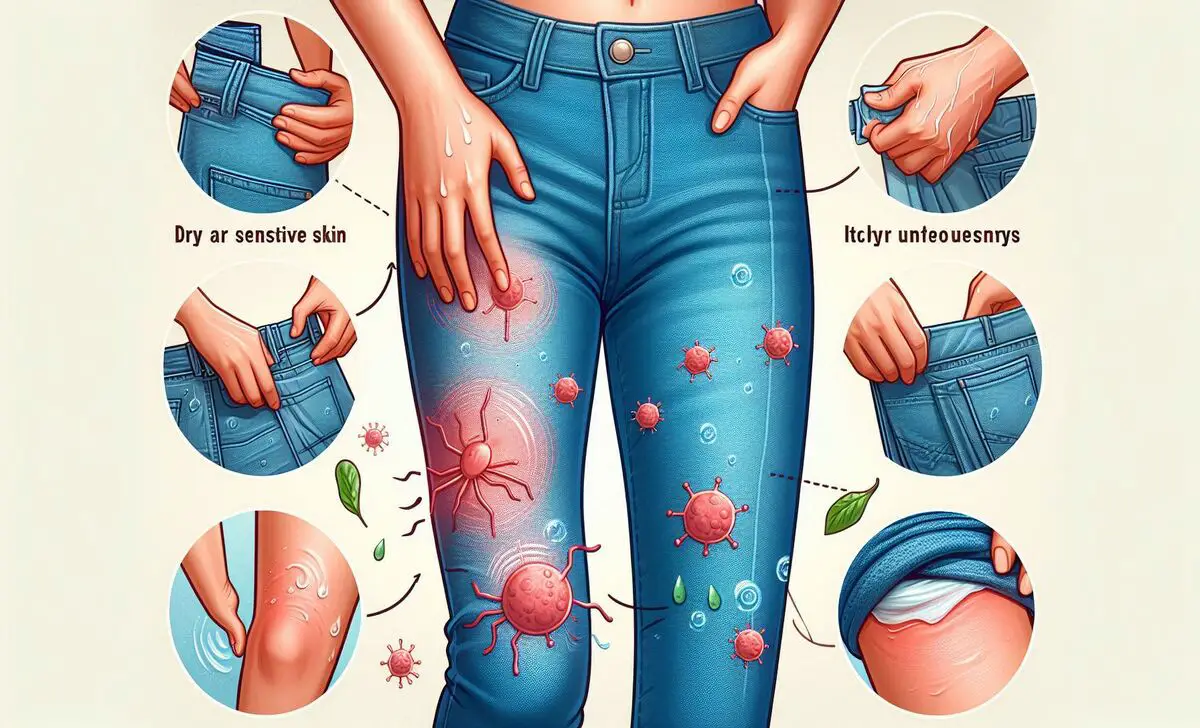
Dryness and sensitivity are common culprits for itchy legs, including the skin underneath jeans. People with sensitive skin may react to certain materials in jeans, leading to itchiness and irritation. To alleviate this, it’s important to choose jeans made from softer, breathable fabrics that won’t further irritate the skin.
Additionally, washing your jeans before wearing them can help remove any potential irritants or chemicals from the fabric. Applying a moisturizer to the affected area can also help soothe dry skin and reduce itchiness. Lastly, it’s best to avoid wearing tight-fitting or restrictive jeans that can cause friction and further irritate the skin.
11.Unwashed Pants
Wearing unwashed jeans can lead to itching due to the buildup of dirt and bacteria on the fabric. Additionally, some people may experience itchiness in jeans due to fabric sensitivity. Certain denim materials can have a rough texture that irritates the skin, while tight-fitting jeans or those with a small amount of stretch can cause discomfort and itchiness.
12.Existing Wounds
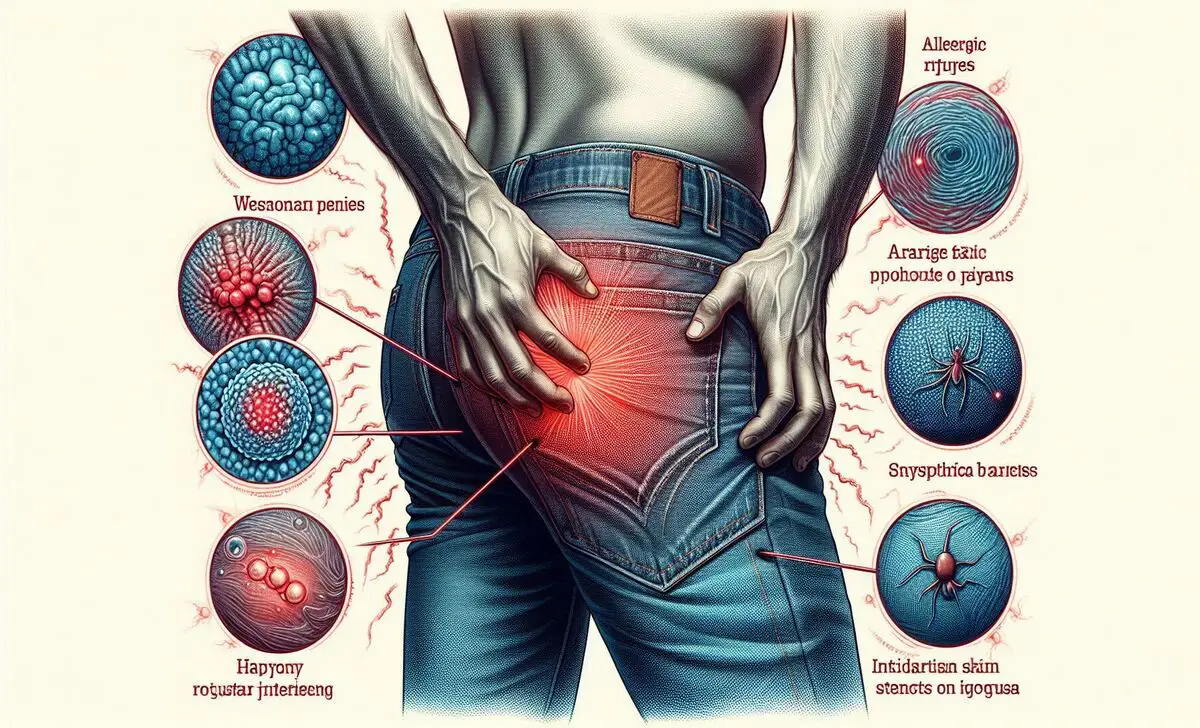
Fabric material plays a crucial role when jeans-related itchiness. Certain fabrics like wool or synthetic blends can irritate some individuals. Allergic reactions to dyes or chemicals used in jean production can also lead to itchiness. Poor-quality denim can have a rough texture, resulting in discomfort and irritation. Additionally, wearing tight-fitting jeans can lead to friction and irritation on the skin.
Individuals with existing skin conditions such as eczema or psoriasis may experience increased irritation when wearing jeans. Finally, improper washing habits, either over-washing or insufficient washing, can contribute to skin irritation.
How To Fix Itchy Jeans?
If your jeans are consistently itchy, there are a few possible causes and solutions to consider. By addressing these potential causes and implementing these solutions, you should be able to enjoy itch-free denim-wearing experiences once again.
- Look for jeans made from natural fibres like cotton or linen, which are typically less likely to cause discomfort.
- Try washing your jeans with a hypoallergenic detergent before wearing them to see if this helps alleviate the itchiness.
- Consider trying a different size or style of jeans that provides a more comfortable fit.
Wash Your Jeans Properly
Dirt and sweat buildup on your jeans can contribute to itchiness. Wash them regularly according to the care instructions to maintain cleanliness and freshness. Overwashing or using harsh detergents can strip the fabric of its natural oils, leading to dryness and itchiness. To keep your jeans in good condition, follow the care instructions on the label and opt for gentle detergents.
Conclusion
Jeans can be itchy for several reasons, primarily due to the fabric composition and finishing processes. Denim, especially when made with a higher percentage of cotton and less stretch material like elastane, can feel rough against the skin, causing irritation.
Additionally, chemicals used in dyeing and finishing processes may not be fully washed out, leading to residual substances that irritate sensitive skin. Sometimes, improper laundering or using harsh detergents can also leave residues that contribute to discomfort.
To alleviate itchiness, consider washing jeans before wearing them to remove chemicals, opt for styles with more stretch if comfort is a priority, and ensure proper laundering practices with gentle detergents. Taking these steps can help maintain both the comfort and longevity of your denim wardrobe
Frequently Asked Questions
1.How Do I Stop My Jeans From Itching?
To prevent your jeans from itching, wash them before wearing to remove any irritants and apply fabric softener for added comfort. Consider wearing a layer between your skin and the jeans, such as leggings or tights. Opt for softer materials like cotton blends instead of stiff denim.
2.Why Do My Jeans Make My Skin Itch?
The materials used in your jeans, such as rough denim or synthetic fabrics, can cause itchiness. Detergents and fabric softeners can also irritate the skin. Allergic reactions to dyes or chemicals in the jeans are another common cause.
3.Why Are My Jeans-Itchy After Washing?
It’s common to experience itchy jeans after washing. Residual detergent or fabric softener, hard water, and using too much detergent can all contribute to the itchiness. To prevent this, rinse your jeans thoroughly after washing, avoid fabric softeners, use a gentle laundry detergent, and don’t overload the washing machine.
4.Why Are My Clothes Itchy When I Wear Them?
Clothing materials like wool or synthetics, laundry products such as fabric softeners, and skin conditions like eczema or allergies can cause itchiness. To fix itchy clothes, wash them with gentle detergent, avoid certain materials, and moisturize your skin.
5.Why Are My Jeans -Itchy?
Jeans can be itchy for several reasons. They could be itchy because of the fibers in the denim fabric, allergic reactions to certain dyes or materials, wearing unwashed pants, or using harsh detergents. To fix itchy jeans, try washing them before wearing them, experimenting with different brands or fabrics, and using gentle detergents.
6.Why Are Your Clothes Itchy After Coming Out Of The Dryer?
Your clothes may feel itchy after coming out of the dryer due to static electricity building up in the fabric. This can be exacerbated by over-drying or using too much detergent. To reduce this effect, try using fabric softener, drying your clothes for a shorter time, or opting for natural fibre clothing.
7.Wonder If It Is Related To The Dye Used In The Clothes?
Yes, the issue could potentially be related to the dye used in the clothes, as some dyes contain chemicals that can cause skin irritation or allergic reactions in some individuals. It’s important to consider the possibility of a dye allergy or sensitivity when experiencing clothing-related skin issues.
8.Why Are Your Clothes Suddenly So Itchy Even Though You Just Washed Them Last Night?
It’s possible that the detergent or fabric softener used in the washing cycle caused a reaction on the fabric, leading to increased itchiness. Certain fabrics, like wool or synthetic materials, can also irritate. To alleviate the itchiness, try rewashing the clothes without fabric softener or switching to a gentle, hypoallergenic detergent. If the issue persists, consider consulting a dermatologist for further advice.









